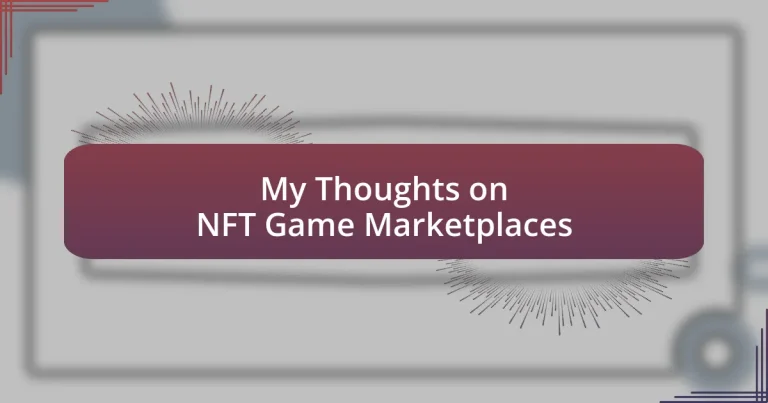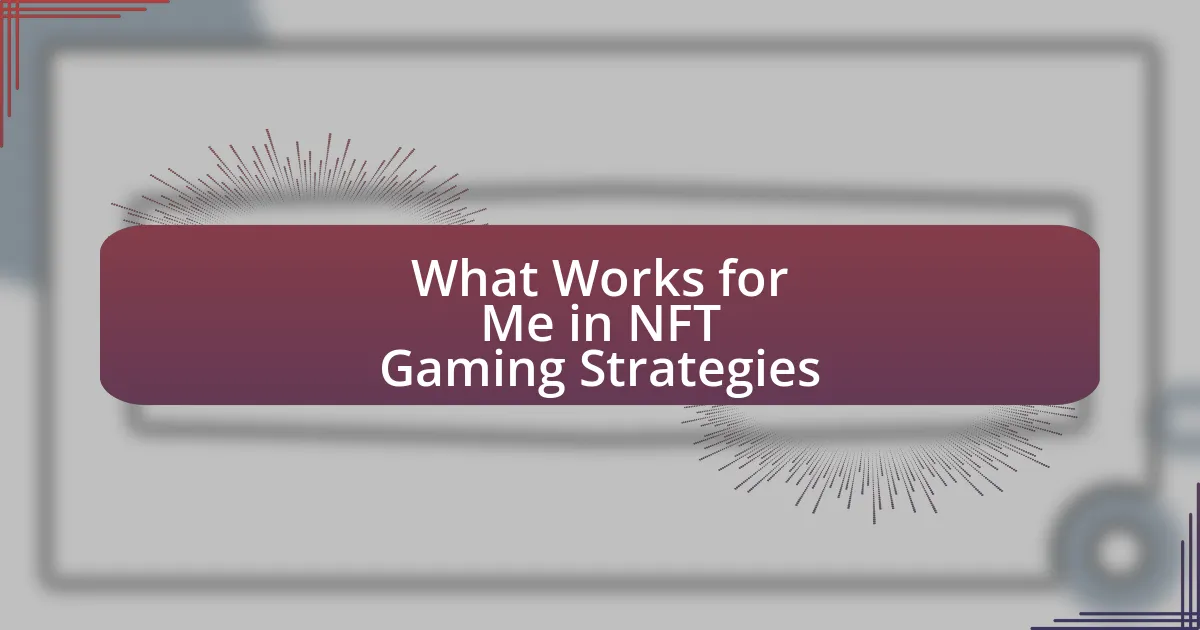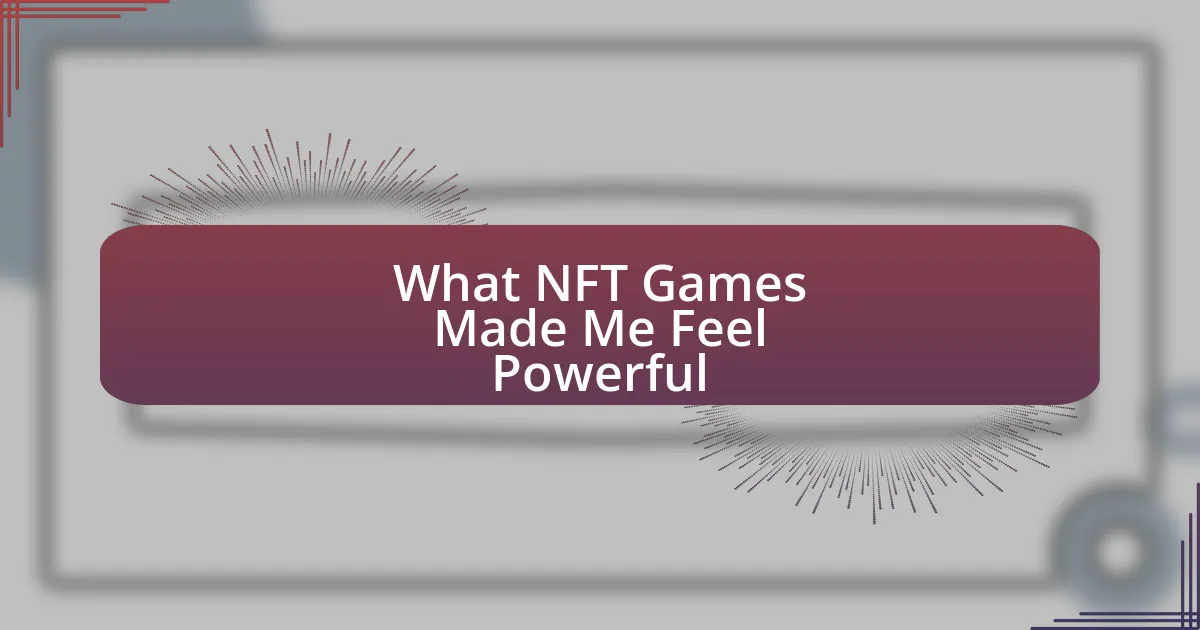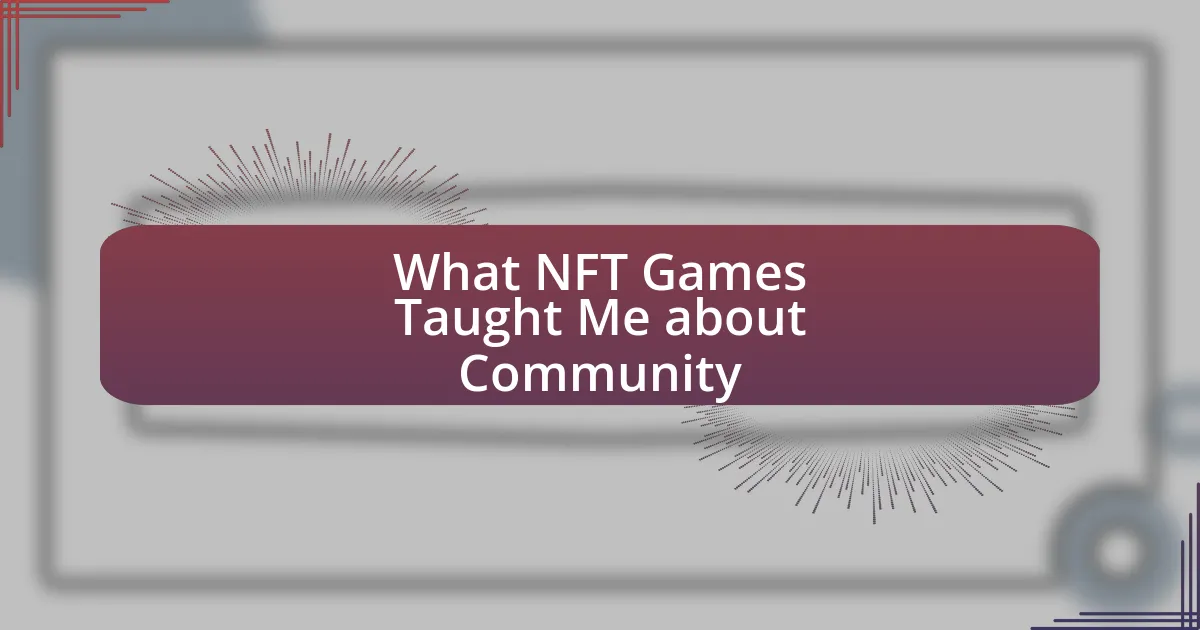Key takeaways:
- NFT game marketplaces enable players to buy, sell, and trade digital assets, fostering community engagement and ownership.
- Key criteria for selecting a marketplace include security, reputation, fees, community size, and support services.
- A clean user interface, detailed analytics, and community engagement features enhance the trading experience.
- Setting a budget, leveraging community insights, and thoroughly reviewing contracts are essential for successful transactions.
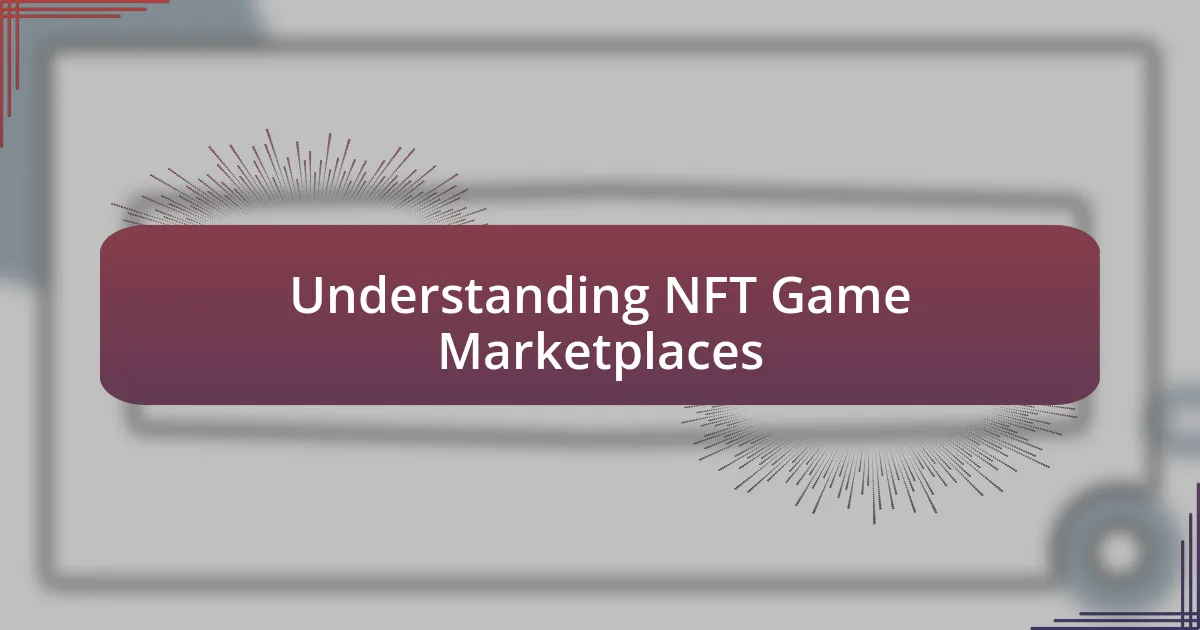
Understanding NFT Game Marketplaces
NFT game marketplaces serve as platforms where players can buy, sell, and trade in-game assets like characters, skins, and virtual land, all represented as non-fungible tokens (NFTs). I remember my excitement when I first navigated through one of these marketplaces; the vibrant visuals and the sheer variety of items were captivating. Isn’t it fascinating how these digital assets can hold real value and community significance?
In my experience, the appeal of NFT game marketplaces lies not just in ownership but also in community engagement. I often find myself drawn to the stories behind the NFTs—just think about it, each item has a narrative that connects players, providing a shared experience beyond mere gameplay. Isn’t it incredible how something as digital as a weapon skin can foster connections among players?
As I delved deeper into this world, I realized that the marketplaces also provide a unique economic model. Unlike traditional games, where your progress might vanish if you quit, NFT games allow players to retain value and even generate income from their virtual endeavors. This shift in the economic landscape made me wonder: how will this influence the future of gaming? It’s a compelling thought!
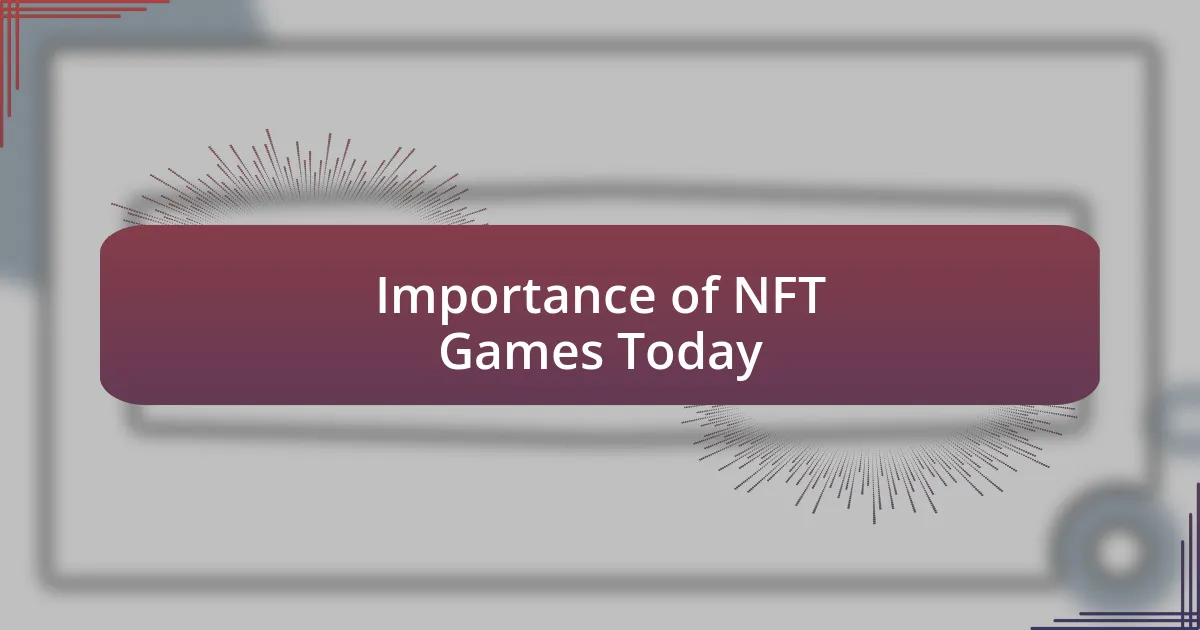
Importance of NFT Games Today
NFT games have surged in importance today as they revolutionize how we view ownership in the gaming industry. I remember the first time I sold an in-game item as an NFT; it felt surreal to exchange something I had earned for actual money. This shift isn’t just about money—it’s also about reclaiming value for our efforts in ways we never imagined possible.
Moreover, the community aspects of NFT games cannot be understated. I often engage with players who share not just tips but also stories attached to their NFTs, making the experience more enriching. Picture a forum buzzing with players trading strategies while displaying their unique collectibles; it’s more than a game, it’s a lively social ecosystem where bonds form over shared interests.
Additionally, NFT games have become significant in introducing new players to the cryptocurrency world. Many friends of mine, initially indifferent to crypto, found themselves intrigued when they realized they could earn and trade in-game assets. It’s this blend of gaming and finance that sparks curiosity and leads to broader adoption of blockchain technology, which is remarkable in itself.
| Aspect | Importance |
|---|---|
| Ownership | Empowers players to retain value for their time and efforts. |
| Community | Fosters connections and narratives among players, enriching the gaming experience. |
| Economic Model | Introduces new financial opportunities through in-game assets. |
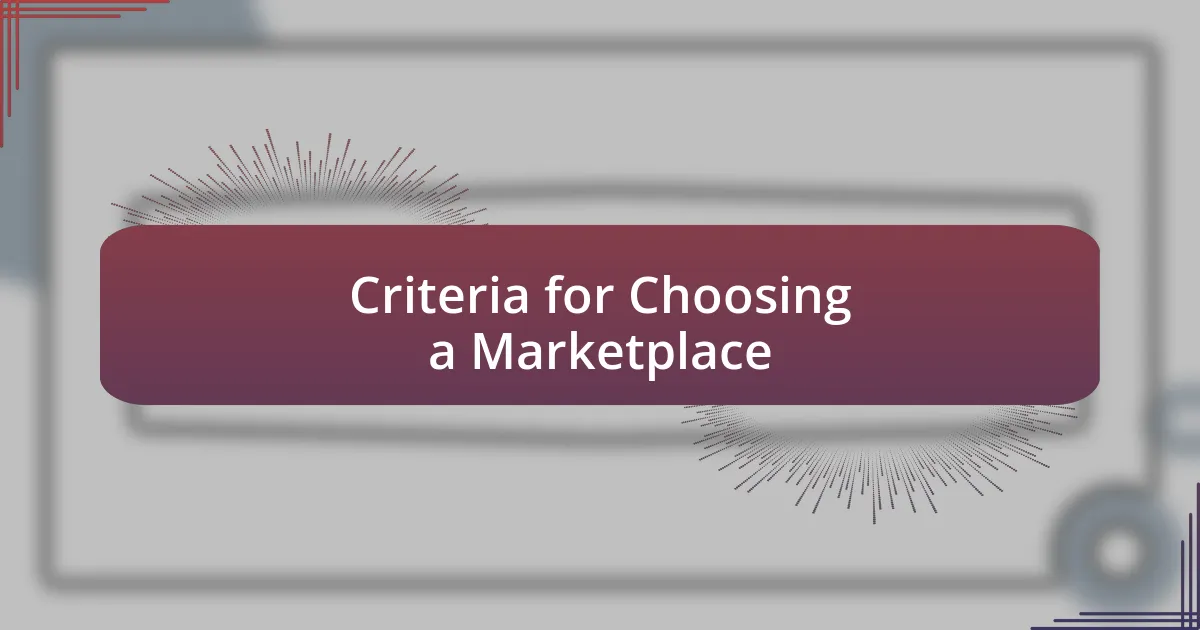
Criteria for Choosing a Marketplace
When selecting an NFT marketplace, I prioritize a few critical criteria that ensure a safe and rewarding experience. From my perspective, the security and transparency of a platform cannot be overstated; I’ve felt uneasy when using marketplaces with vague protocols. Moreover, user experience plays a significant role—having a smooth interface and responsive features can make the difference between a pleasant or frustrating trading session.
Here are key criteria to consider:
- Security: Look for platforms with robust security measures like two-factor authentication.
- Reputation: Research user reviews and the marketplace’s track record to gauge reliability.
- Fees: Understand the costs associated with transactions to avoid surprises.
- Community Size: A larger community often means better opportunities for trade and collaboration.
- Support Services: Effective customer support can save you time and hassle if issues arise.
In my journey through the NFT gaming world, I once faced a horror story on a less reputable platform—after trying to sell a rare item, I realized the marketplace lacked adequate support. Hours spent navigating their system left me frustrated and with unanswered questions. This experience drove home the importance of choosing a marketplace that prioritizes user support; it’s a lesson I carry with me whenever I explore new options.
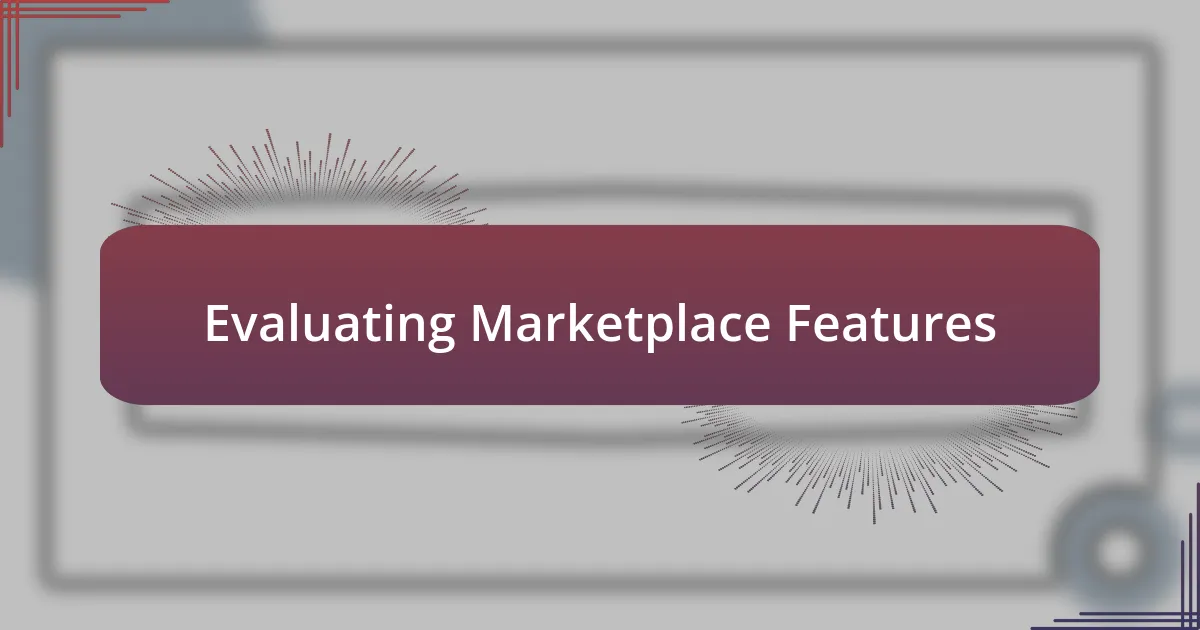
Evaluating Marketplace Features
When I evaluate marketplace features, I pay close attention to the user interface. I’ve encountered platforms where the design felt cluttered, making it hard to focus on trading. Can you imagine trying to buy an NFT but feeling lost in a maze of options? A clean, intuitive interface can truly streamline the experience, allowing you to engage with the marketplace effortlessly.
Another essential feature is the availability of detailed analytics. I’ve found it incredibly frustrating to make decisions without solid data to back them up. For instance, when I was considering investing in a specific game asset, I wanted more than just a price tag; I appreciated platforms that provided historical pricing trends and usage statistics. This not only enhances my decision-making but also adds a layer of confidence in my transactions.
Lastly, I can’t stress enough the importance of community engagement features. Platforms that host forums or offer spaces for discussion have enriched my experience immeasurably. When I first joined a marketplace with a vibrant community, I was able to connect with other gamers and traders, gaining insights that led to more informed purchases. Engaging with others can reveal opportunities I might have otherwise missed.
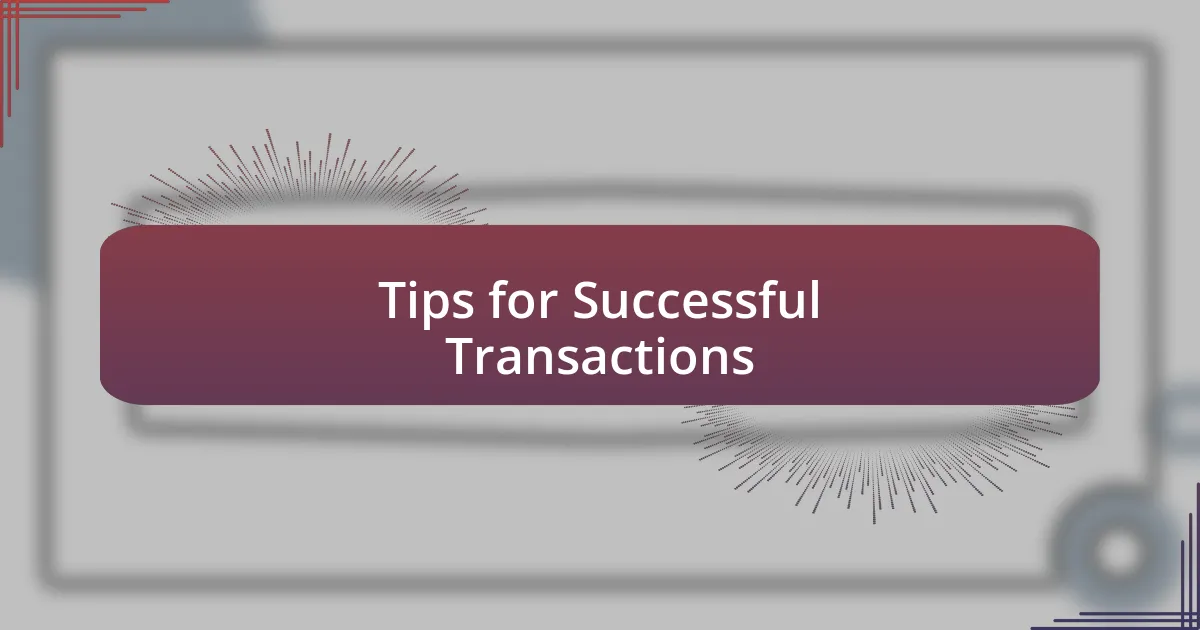
Tips for Successful Transactions
When navigating NFT game marketplaces, I’ve learned that setting a budget is crucial. Early on, I recall getting carried away during a bidding war for a rare item. The thrill was undeniable, but afterward, I regretted exceeding my financial limits. By establishing a clear budget before diving in, I protect myself from impulsive decisions that could lead to buyer’s remorse.
Additionally, leveraging both research and community insights can significantly enhance transaction success. I remember my first experience selling an NFT; without guidance, I underpriced it. Seeking advice from more experienced members in community forums helped me understand market trends and realize its true value. This reinforces the importance of engaging with others—they often share experiences that can save you from costly mistakes.
Lastly, never underestimate the power of thorough contract review. I once skimmed through the terms of a smart contract only to find surprise fees later on. It’s a rookie mistake I won’t make again. Taking a moment to carefully read through the contracts not only safeguards your interests but also builds trust in the marketplace. Are you overlooking these vital steps in your transactions? Consider taking the time to ensure your investments are secure.

